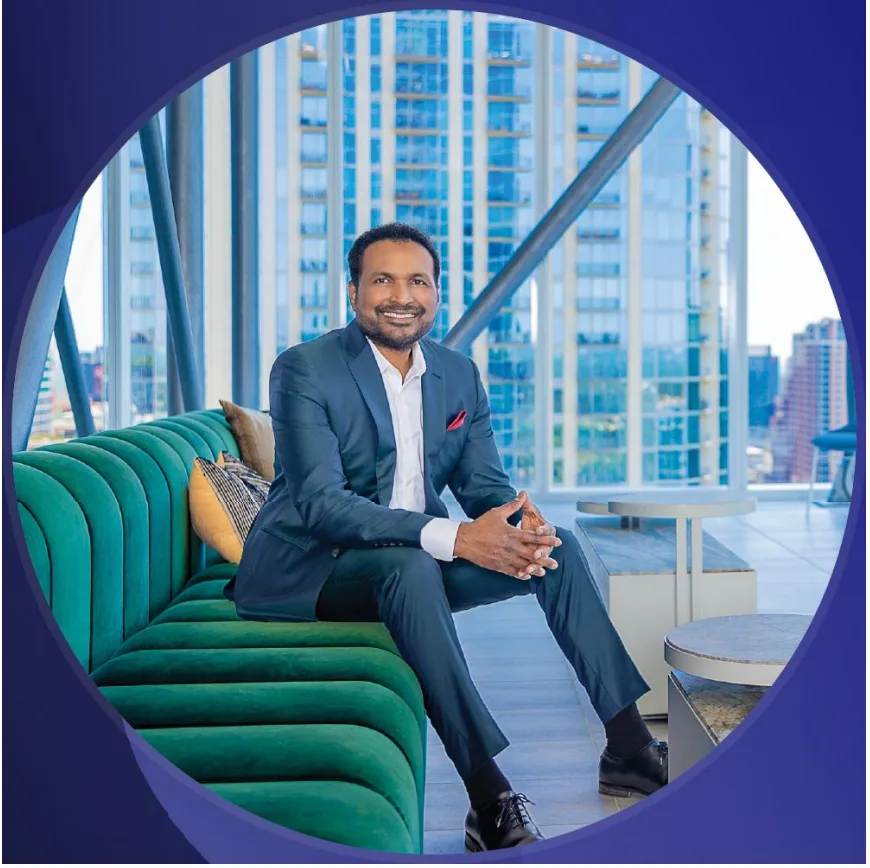Asking Great Questions And Delegating To Experts
Curiosity drives innovation and growth, serving as the spark that motivates individuals to explore beyond the obvious. It compels people to ask questions, test assumptions, and seek insights that others may overlook. Entrepreneurs and leaders who embrace curiosity gain an edge, identifying opportunities and approaches that differentiate them in competitive fields.
Shravan Parsi, Founder and CEO of American Ventures, highlights the role of curiosity in real estate investing and entrepreneurship. He proposes that combining inquisitiveness with focused action enables professionals to accelerate learning, refine strategies, and achieve meaningful outcomes while avoiding the trap of repetitive practices that yield average results.
The Role of Curiosity in Discovery
Shravan Parsi believes that curiosity is the first step toward meaningful discovery. His early career as a pharmaceutical scientist illustrates this principle. Observing peers investing in real estate, he asked questions about their methods and eventually undertook his own first deal. While initially following common approaches, his curiosity drove him to innovate and explore ways to differentiate his strategies.
This willingness to ask questions and experiment allowed Shravan to move beyond conventional paths. He learned early on that in any professional field, curiosity is what prompts individuals to challenge the status quo, explore alternatives, and generate ideas that may lead to breakthroughs. By asking questions that begin with “I wonder what would happen if…” or “I wonder how…,” he believes that professionals create pathways to insights that would otherwise remain hidden.
Balancing Hands-On Learning with Expert Guidance
While curiosity encourages exploration, experience alone may not provide sufficient insight to achieve expert-level results quickly. Shravan recognized this when developing his public speaking skills and entrepreneurial strategies.
Rather than relying exclusively on trial and error, he sought guidance from mentors and coaches, discovering that structured input accelerates growth. Research supports this approach, showing that directed practice under expert supervision produces faster and more substantial improvements than unguided experience.
Shravan insists that entrepreneurs who integrate coaching with hands-on practice gain a firmer grasp of fundamentals, avoid common pitfalls, and operate at a higher level of strategic thinking. By combining curiosity-driven experimentation with expert guidance, he believes that learning becomes both deep and efficient, enabling professionals to advance more quickly than those relying solely on self-directed experience.
Harnessing Accelerated Intelligence
Accelerated intelligence techniques enhance the ability to learn efficiently and apply insights across multiple domains. In Shravan Parsi’s view, influential entrepreneurs such as Elon Musk, Charlie Munger, and Ray Dalio utilize these methods to learn fundamentals from diverse industries and apply them innovatively in their own fields.
Shravan points to Michael Simmons’ strategies for accelerated intelligence, which include dedicating at least five hours per week to structured learning, building mental models to understand principles, and comparing concepts across disciplines to identify patterns. Like Simmons, Shravan agrees that practicing these methods allows professionals to increase their capacity for critical questioning and innovative thinking.
Shravan also advocates for cross-disciplinary learning. Also known as intellectual cross-pollination, this approach fosters the ability to recognize connections between fields and apply new knowledge to one’s own domain. Furthermore, it turns curiosity into actionable insights, equipping professionals to make better decisions and pursue opportunities others may overlook.
Grit, Flexibility, and Focused Discipline
Shravan reminds us that curiosity alone is insufficient to sustain progress and that grit and flexibility are equally critical. Entrepreneurs frequently encounter obstacles that test their persistence and adaptability. He emphasizes that the combination of curiosity, grit, and flexibility creates a self-reinforcing cycle. For him, curiosity identifies opportunities, grit maintains effort through challenges, and flexibility allows for necessary adjustments when circumstances change.
Shravan cautions against curiosity without discipline, which can lead to overanalysis or wasted time exploring less relevant avenues. He advises setting measurable objectives and key results to maintain focus and ensure that learning contributes directly to desired outcomes. He believes that evaluating progress regularly while balancing learning with action enables professionals to refine their strategies without getting trapped in endless cycles of information gathering.
Delegating to Experts to Amplify Impact
Strategic delegation allows leaders to maximize the benefits of curiosity and disciplined learning. By hiring experts and trusting them to manage critical tasks, leaders free themselves to focus on high-value activities, including exploring new opportunities and innovating.
Shravan advocates creating conditions that nurture curiosity through structured evaluation, public goal-setting, and reliance on skilled team members. This approach fosters a culture of accountability, independence, and initiative, empowering team members to leverage their strengths while supporting organizational objectives. When leaders delegate effectively, they mitigate personal weaknesses, enhance overall efficiency, and allow their own curiosity to explore broader possibilities.
Converting Weaknesses into Strengths Through Thoughtful Evaluation
An essential component of working to one’s strengths involves inward evaluation. Professionals can assess what methods and learning styles produce the best results and then adjust their approach accordingly.
Shravan notes that even if reading is not a personal strength, one can supplement it with discussions with experts or listening to audiobooks. By focusing on methods that align with their strengths, professionals increase the effectiveness of their curiosity and learning.
Shravan recommends engaging with experts directly, asking precise questions, and seeking practical insights to transform curiosity from a passive habit into a tool for developing actionable knowledge. Alliances with those whose expertise complements personal weaknesses further enhance the ability to execute effectively.
Bringing Curiosity into Action
The integration of curiosity, disciplined learning, grit, flexibility, and delegation enables professionals to transform exploration into tangible results. Shravan Parsi consistently advocates for this approach, emphasizing that asking great questions, leveraging expert guidance, and aligning tasks with individual strengths produce superior outcomes in real estate investment and entrepreneurship.
Whether applied to managing complex deals or pursuing innovative initiatives, Shravan’s framework provides a structured method for turning curiosity into measurable achievement. Just as importantly, it enables professionals to uncover opportunities, solve complex challenges, and advance their goals while maintaining a sustainable, focused approach.
By fostering curiosity, practicing accelerated intelligence, cultivating resilience and adaptability, and delegating to capable experts, professionals create an environment where learning translates directly into performance.
Shravan Parsi’s experience demonstrates that when curiosity is guided thoughtfully, supported by expert input, and coupled with disciplined execution, it becomes a powerful driver of growth and innovation. Professionals who adopt these principles strengthen their ability to lead, make informed decisions, and realize their objectives while continuing to explore and innovate across their fields.






